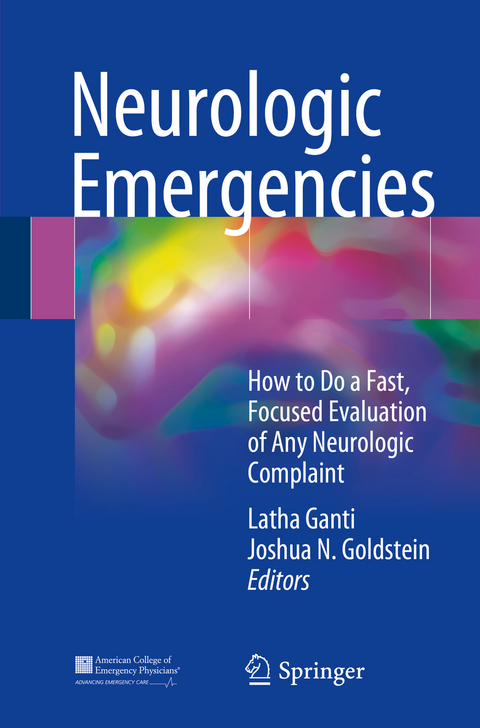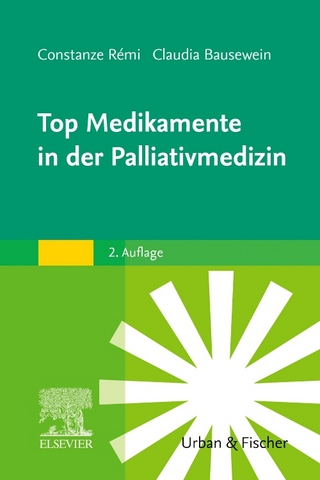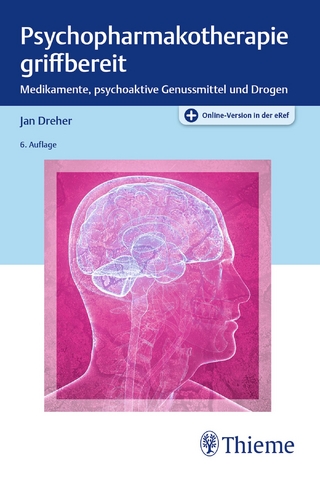
Neurologic Emergencies
Springer International Publishing (Verlag)
978-3-319-64521-6 (ISBN)
Neurologic Emergencies includes these point-of-care-friendly features:
- Extensive number of algorithms for distinct presenting symptoms
- Classic neuroimaging findings
- A concise bullet on what information needs to be conveyed to consultants
- Reference to relevant national guidelines where applicable
- Common chapter format to facilitate quick look-up
Latha Ganti, MD, MS, MBA is Professor of Emergency Medicine and Neurology at the University of Central Florida College of Medicine in Orlando, Florida, and Research Director for the the Hospital Corporation of America GME Consortium. . Her areas of expertise include stroke and traumatic brain injury, and her lab has enjoyed continuous extramural funding for the last 15 years, from the US Department of Defense, NIH, and private foundations. Dr. Ganti has published extensively in the field of neurologic emergencies, with over 100 papers. Dr. Ganti is also the founding Editor in Chief for the International Journal of Emergency Medicine, and has authored over 20 books and 100 research manuscripts. In addition to being a Fulbright scholar, Dr. Ganti has won numerous national teaching and leadership awards from the Mayo Clinic, the American Medical Association, and the American College of Emergency Physicians. Joshua N. Goldstein MD, PhD, FACEP, FNCS is an Associate Professor of Emergency Medicine at Harvard Medical School. He works in the Department of Emergency Medicine at Massachusetts General Hospital in Boston, and manages a clinical research program focused on improving the care of patients with neurological emergencies. With support from NIH, industry, and nonprofit sources, his team performs clinical trials in diseases such as stroke, intracerebral hemorrhage, and emergency anticoagulation reversal. Dr. Goldstein has lectured nationally and internationally on neurological emergencies, and has received awards from the Society for Academic Emergency Medicine and the Neurocritical Care Society. He has published over 100 original peer-reviewed research articles as well as numerous chapters and reviews, and runs a popular annual CME course focused on the evaluation and management of neurologic emergencies.
1. The fast focused neurologic exam.- 2. "Rule out acute stroke".- 3. Acute head injury: When to image, when to observe?.- 4. Seizure activity: How to examine while treating.- 5. Syncope: Who needs imaging? Who needs admission?.- 6. Dizziness: An evidence based approach: Better than MRI?.- 7. Acute eye symptoms: diplopia and loss of vision.- 8. Headache: When to image, when to tap.- 9. Neck and back pain: Who needs an MRI?.- 10. The non-anatomic exam: psychogenic syndromes and malingering.- 11. Altered mental status.- 12. Acute generalized weakness.- 13. Acute manifestations of chronic neurologic disease.- 14. CNS infections.- 15. Encephalopathy and Neurotoxicology.- 16. Movement disorders emergencies.- 17. Basic neuroanatomy.- 18. Basic emergent neuroimaging.- Glossary .
"Neurological Emergencies provides a succinct yet ample review of the most common neurological emergencies that an emergency care provider will likely encounter. While not a bedside handbook, it is easy to read, well laid out, and would be a great resource for anyone who cares for patients in the emergency setting." (David W. Wright, Neurosurgery, Vol. 83 (05), November, 2018)
"An excellent addition to the library of anyone who needs to develop residency lectures or handouts (as well as, of course, to any practicing clinician). ... The level of detail is much greater than that of a pocketbook ... and the detail is meaty. The real prize is the many tables and lists, some taken directly or adapted from source material and others created by the authors ... . " (Theresa M. van der Vlugt, Annals of Emergency Medicine, Vol. 72 (3), September, 2018)
"This book covers the most common and most important neurological emergencies. ... The focus is neurological emergencies, primarily presenting in the emergency department. ... it is a good resource not only for differential diagnoses, but treatment options and dispositions. ... This is a good reference for emergency medicine physicians or trainees who would like to brush up on their neurological diseases." (Oliver Garrison, Doody's Book Reviews, June, 2018)
| Erscheinungsdatum | 29.12.2017 |
|---|---|
| Zusatzinfo | XIV, 319 p. 90 illus. in color. |
| Verlagsort | Cham |
| Sprache | englisch |
| Maße | 155 x 235 mm |
| Gewicht | 510 g |
| Themenwelt | Medizin / Pharmazie ► Medizinische Fachgebiete ► Intensivmedizin |
| Medizin / Pharmazie ► Medizinische Fachgebiete ► Neurologie | |
| Medizin / Pharmazie ► Medizinische Fachgebiete ► Notfallmedizin | |
| Schlagworte | Accident & emergency medicine • Accident & emergency medicine • Emergency Medicine • focused evaluation • Intensive Care Medicine • Intensive / Critical Care Medicine • Medicine • Medicine: general issues • Neurocritical Care • neurologic emergencies • Neurology • Neurology & clinical neurophysiology • Neurology & clinical neurophysiology |
| ISBN-10 | 3-319-64521-8 / 3319645218 |
| ISBN-13 | 978-3-319-64521-6 / 9783319645216 |
| Zustand | Neuware |
| Informationen gemäß Produktsicherheitsverordnung (GPSR) | |
| Haben Sie eine Frage zum Produkt? |
aus dem Bereich


